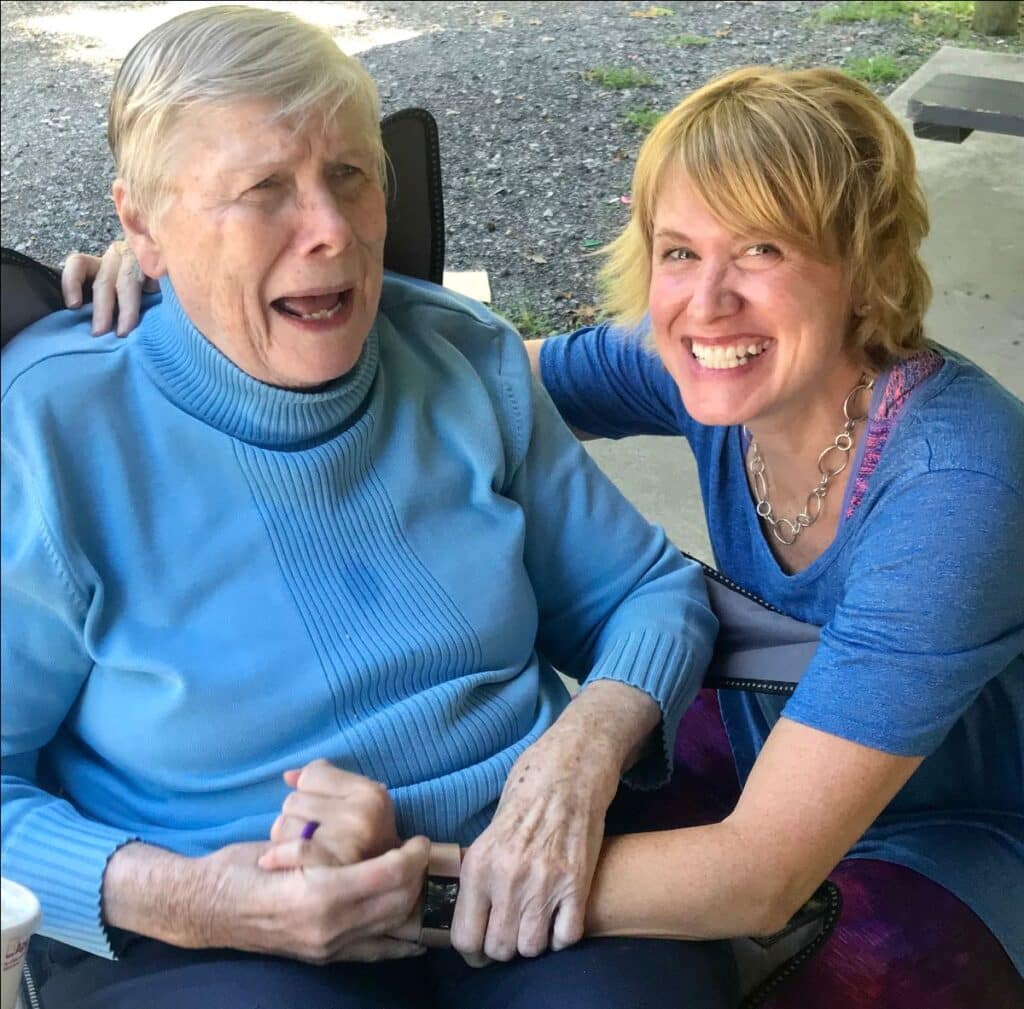Uppmuntrande ord: Hålla fast vid minnen av mamma

by Amy Shillady
The COVID-19 pandemic has inflicted tremendous loss. Some people have missed out on long-anticipated vacations or wedding ceremonies, and some have even lost jobs or homes. Thousands upon thousands have lost their lives. It’s heartbreaking. However, some stories of loss remain untold, because the victims no longer have a voice.
Mom’s loss started with little things – forgetting the name of a friend, failing to recall the main ingredient in her favorite recipe, and wondering: who was her favorite author again? She used to love to read, but now couldn’t seem to concentrate. Bothered by her symptoms, Mom went to see a neurologist. After several tests spanning a year, she was diagnosed with FTD just a few years shy of her 80th birthday. I know I should be grateful that her life wasn’t tragically cut short, but the reality that I was losing my mom just as I became a mother myself was hard to accept and ushered in a deep grieving.
I felt particularly troubled by the way we were losing her – one memory at a time. It felt like that time I failed to hit save on my computer after finishing a 20-page college paper. The power went out and all that time and effort was gone, just like that. I recalled the saying: If a tree falls in the forest and no one is there to hear it, does it make a sound? And when I thought about Mom’s memories slipping away, I kept asking myself: If no one remembers it, did it still happen?
Panicked at the thought of losing her stories, particularly the ones from my childhood, I began to write them down. One day I spent hours feverishly writing every memory I had of Mom – everything from what she packed in my lunch when I was eight years old, to what game she planned for my baby shower. I wrote until my wrist hurt, and then kept the journal by my bedside. Sometimes I would wake up in the middle of the night and record some odd memory that came to me out of nowhere. I wrote it all down because I wanted to remember it, and because I wanted to believe that it all mattered. I wanted to believe that even after she was gone, Mom would still matter.
Despite all the fear and loss associated with Mom’s diagnosis, I believe there is also hope. One of my cousins said to me, “I appreciate the way your mom feels so much love.” And my cousin is right – Mom is constantly saying “I love you!” to me when we’re on the phone. When she was still able to go into stores, she would approach complete strangers expressing love, often to my embarrassment. I would rush in to explain, “I’m sorry, she has dementia and doesn’t know what she’s saying.” However, my cousin’s comment helped me reframe these behaviors.
I know Mom’s doctor would tell me that her expression of love to total strangers is typical in FTD. I’m sure I could look at her MRI scan and see the specific sections of her damaged brain that are responsible. But my experience leads me to believe there are some things that can’t be measured or explained by science alone. I choose to believe that Mom’s FTD has revealed her truest intention and internal motivation – and that is love. Pure love.
Before her illness, Mom was a kindhearted person with flaws, just like anyone else. But now I can look past those flaws and simply see her love. I can pass that love on to my own two children and teach them about the limitless possibilities for deep connection that can bind us together through pain and loss.
FTD has taken a lot from us, and so has COVID-19. But our stories remain, and they matter. Storytelling can be a powerful, healing, and uniting force. Even though my mom can no longer tell it, I believe her story of loss – and ultimately love – is worth sharing. So, I will continue chronicling it for my family and sharing it anywhere it can encourage others.
Efter kategori
Våra nyhetsbrev
Hållas informerad
Registrera dig nu och håll koll på det senaste med vårt nyhetsbrev, evenemangsvarningar och mer...
